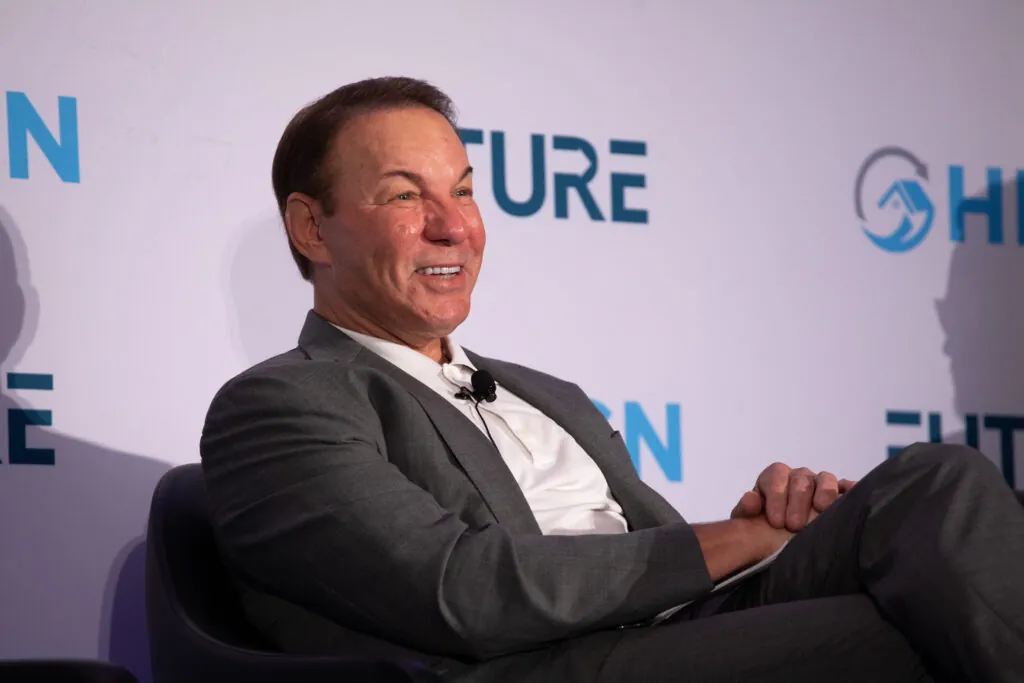It’s been a monumental year for the home health giant LHC Group, which was officially acquired by UnitedHealth Group’s (NYSE: UNH) Optum in February.
The same can be said for Keith Myers, LHC Group’s longtime leader.
In his position, Myers — now CEO Emeritus of LHC Group and a special advisor to Optum — has seen the evolution of a company and an industry.
“[Back in the ‘90s], when we’d make our rounds talking to people, and telling them that we were in the home care business, we were explaining to people that we weren’t repairing houses,” Myers said last month during Home Health Care News’ FUTURE conference. “To think where LHC has gone, and where the industry has gone, from then to now.”
LHC Group was founded in 1994 by Myers’ wife Ginger. Now, the company is looking towards its next chapter.
Myers, LHC Group’s board of directors and its senior leadership team saw the acquisition as a way to address the growing number of patients that the home-based care company wasn’t able to provide care for.
“We recognized that more quickly than a lot of providers, just because of the referrals we got from hospitals,” Myers said. “We had a much higher percentage of managed care referrals coming our way, and we didn’t have the resources to care for those patients, and we wanted to care for them. The hospital needs us to care for them.”
With that in mind, LHC Group began to talk to potential partners. That led to the relationship formed with UnitedHealth Group and an eventual acquisition.
“We couldn’t be happier with where it ended up,” Myers said. “I say that because Optum is a provider network, so we’re now positioned as the home care platform within a broader provider network, and we’re able to work with other providers and participate in a risk model and care for more patients.”
Though it’s still early days, being part of Optum has already begun to impact LHC Group as an organization.
Specifically, the deal has positioned LHC Group to continue expanding its care delivery capacities, which its leaders believe will lead to more growth in the future.
“If you aren’t able to provide care — you can’t grow the company,” Myers said.
As part of the new setup, Myers has also moved into a new role.
“As a CEO of a public company, I probably spent 35-40% of my time on things that would fall under an investor relations bucket,” he said. “I’ve got a little more pep in my step now, because that time is being reallocated into two buckets at LHC. It’s being more involved with our culture, and just being a mentor to our leadership team. The other part is working within Optum with other provider segments, as we start this journey of integrating the home health platform.”
Myers noted that he also remains deeply involved in broader home health advocacy efforts.
He believes that being under the Optum umbrella gives the home health industry more firepower in terms of advocacy. Myers pointed to the comment letter LHC Group directed at the U.S. Centers for Medicare & Medicaid Services (CMS) following the release of the home health proposed payment rule.
“Just take our comment letter this year,” he said. “When our comment letter goes out, it’s not just an LHC Group letter, it’s got Optum.”
That said, based on his years of industry experience, Myers thinks that it’s unlikely the proposed payment rule will be finalized in its current form.
“I don’t think we’ve ever had a proposed rule that was finalized,” he said. “In my recollection, it’s always been a neutral or positive adjustment. Certainly, in the last 10 years, our industry has really ramped up our advocacy efforts. We used to say that people really didn’t know us, and we were being pushed aside by bigger advocacy groups — [ones for] hospitals and physicians. I think we are almost on equal footing now.”
Similar to many of the other providers and home health stakeholders that choose to publicly comment on the proposed payment rule, access to care is top of mind for LHC Group.
Many are concerned that more cuts to home health reimbursement will stymie providers’ ability to deliver care at home.
“How can we continue to cut home health, from a reimbursement perspective … when it’s what everyone wants, and it’s the least costly alternative?” Myers said. “We do a lot with hospital partners. There are a lot of patients that get referred to home health out of hospitals and aren’t admitted. They aren’t able to access care for any number of reasons. When you look at what happens to those patients, it’s pretty terrible. The rehospitalization rate is doubled.”
Ultimately, Myers thinks that home health providers should still be excited about the future.
“We have a lot to learn, we have to embrace risk, learn how to manage it and go in that direction,” he said. “You’re not going to do it alone. It takes all provider segments working together.”




